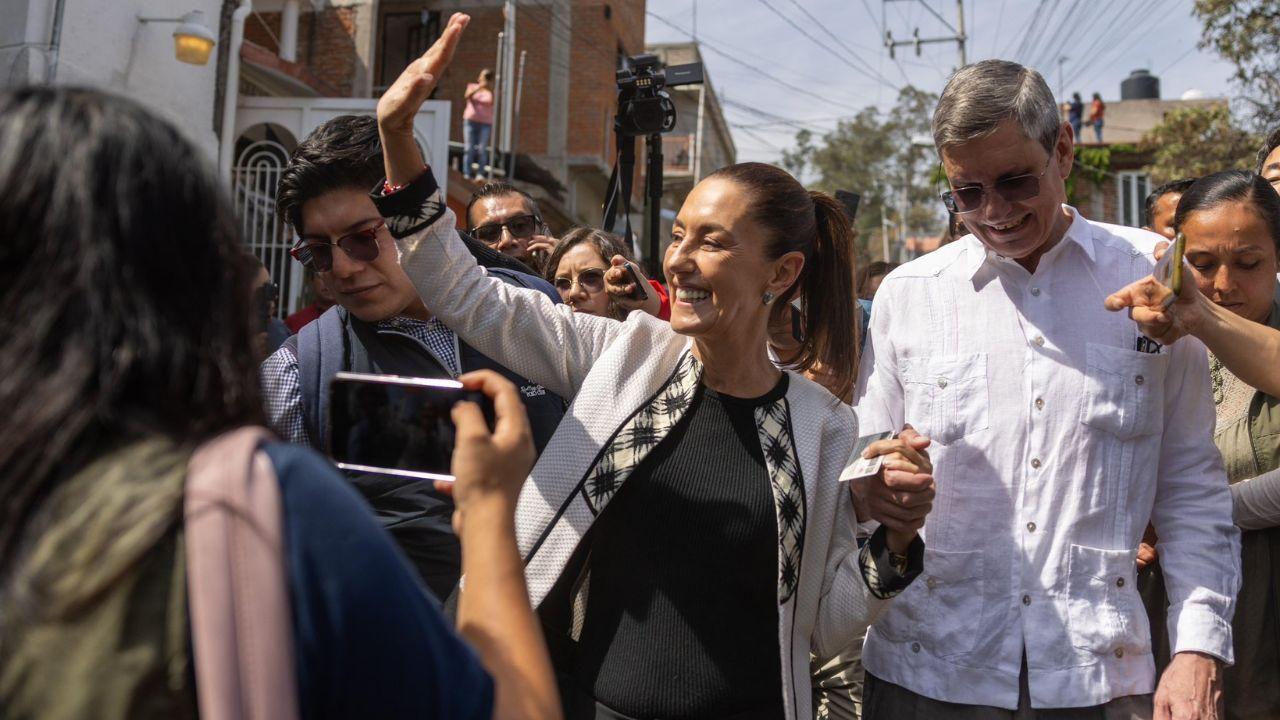Claudia Sheinbaum's election as Mexico's first woman leader marks a significant milestone in the nation's history. This victory is a turning point for a country that has been governed exclusively by men for over 200 years since its independence. Pics/ AFP & X
Updated On: 2024-06-03 02:15 PM IST
Compiled by : Sanjana Deshpande


Sheinbaum, the 61-year-old former Mexico City mayor, ran a disciplined campaign promising the continuity of her predecessor, Andrés Manuel López Obrador's policies. Her campaign capitalised on his popularity, leading to her decisive victory.
With a PhD in energy engineering, Sheinbaum's scientific background is expected to influence her governance style. Unlike López Obrador, she is seen as more data-driven and less combative, which was evident during her handling of the COVID-19 pandemic in Mexico City.
Upon taking office on October 1, Sheinbaum will face the challenge of addressing Mexico's persistently high levels of violence. She has pledged to continue López Obrador's strategy of targeting social issues that lead to crime while avoiding an authoritarian approach.
One of Sheinbaum's significant challenges will be addressing gender violence and femicide. In Mexico, up to 10 women are victims of femicide each day, and thousands more have disappeared. She plans to replicate measures against gender-based violence that she implemented as mayor, including creating an anti-femicide prosecutor's office.
Teenage pregnancy remains a concern in Mexico. While the Supreme Court ruled national laws prohibiting abortions unconstitutional, state-level legal work is ongoing. Sheinbaum did not address this issue during her campaign, leaving many looking for her stance on improving access to safe and legal abortion
The gender employment gap in Mexico is significant, with only 47 per cent of women employed compared to 76 per cent of men. Among employed women, a large proportion hold informal jobs and spend extensive hours on household chores, limiting their participation in the labour market. Addressing this disparity will be crucial for Sheinbaum.
Sheinbaum has struggled to construct an image distinct from her mentor, López Obrador. Observers are keen to see how she will assert her individuality in leadership while maintaining the popular policies of her predecessor.
Sheinbaum's election is part of a broader trend of increasing female representation in Mexican politics. Women currently lead key institutions like the Senate, the Supreme Court, and the National Electoral Institute. However, challenges persist, particularly in Indigenous communities where male dominance remains strong.